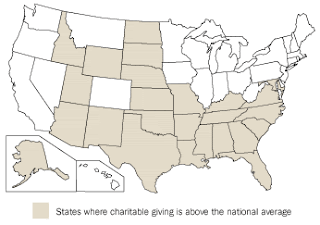Versus the evil Republicans who love money!
Former Dem. Congressman Kennedy Alleges 'Quid Pro Quo' for Access to White House
8:42 AM, Apr 15, 2012
Access to the Obama White House is in direct correlation to the amount of money donated to the president's reelection effort and the Democratic party, the New York Times reports today.
The Times reports: "those who donated the most to Mr. Obama and the Democratic Party since he started running for president were far more likely to visit the White House than others. Among donors who gave $30,000 or less, about 20 percent visited the White House, according to a New York Times analysis that matched names in the visitor logs with donor records. But among those who donated $100,000 or more, the figure rises to about 75 percent. Approximately two-thirds of the president’s top fund-raisers in the 2008 campaign visited the White House at least once, some of them numerous times."
But the most explosive allegation in the news story comes from former Democratic congressman Patrick Kennedy, son of the late Ted Kenney, who calls what the Obama White House is doing "quid pro quo."
obam,a
The Times reports: "those who donated the most to Mr. Obama and the Democratic Party since he started running for president were far more likely to visit the White House than others. Among donors who gave $30,000 or less, about 20 percent visited the White House, according to a New York Times analysis that matched names in the visitor logs with donor records. But among those who donated $100,000 or more, the figure rises to about 75 percent. Approximately two-thirds of the president’s top fund-raisers in the 2008 campaign visited the White House at least once, some of them numerous times."
But the most explosive allegation in the news story comes from former Democratic congressman Patrick Kennedy, son of the late Ted Kenney, who calls what the Obama White House is doing "quid pro quo."
Patrick J. Kennedy, the former representative from Rhode Island, who donated $35,800 to an Obama re-election fund last fall while seeking administration support for a nonprofit venture, said contributions were simply a part of “how this business works.”
“If you want to call it ‘quid pro quo,’ fine,” he said. “At the end of the day, I want to make sure I do my part.”
Mr. Kennedy visited the White House several times to win support for One Mind for Research, his initiative to help develop new treatments for brain disorders. While his family name and connections are clearly influential, he said, he knows White House officials are busy. And as a former chairman of the Democratic Congressional Campaign Committee, he said he was keenly aware of the political realities they face.
And Kennedy admits that folks in the White House are checking out the donor records:
“I know that they look at the reports,” he said, referring to records of campaign donations. “They’re my friends anyway, but it won’t hurt when I ask them for a favor if they don’t see me as a slouch.”Literally translated, "quid pro quo" means "something for something." As in, if you want something from the Obama White House, then give something (e.g., cash).
obam,a




